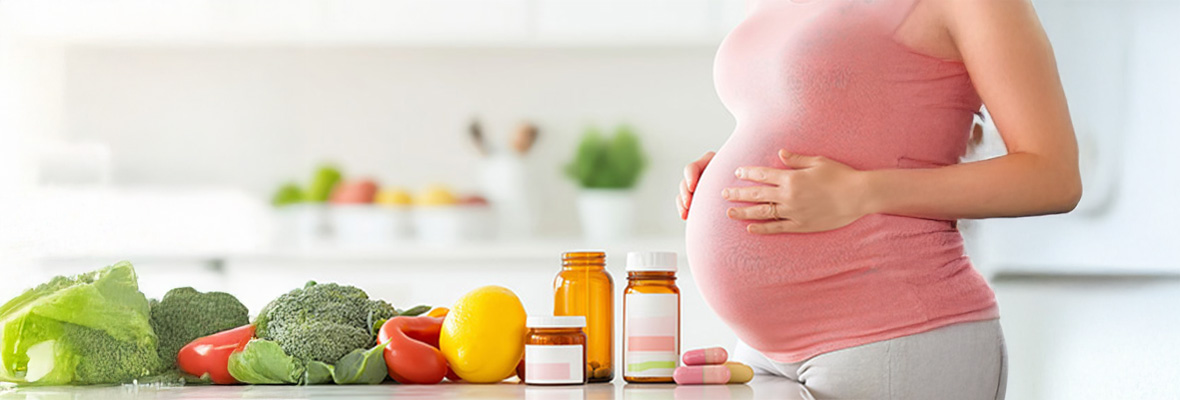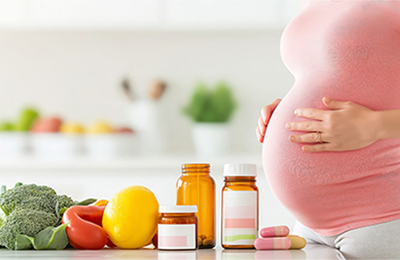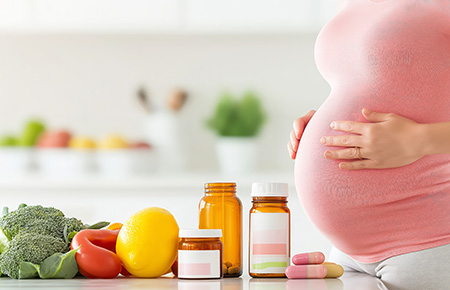

Pregnancy changes everything. What used to be enough for one person now needs to support two. The body works harder, faster, and more efficiently to support the baby. But that means it also needs more help. Getting the right vitamins during pregnancy isn’t just a good idea. It’s necessary.
Food alone doesn’t always cut it. Sometimes it’s about timing. Sometimes it’s about how much you’re absorbing. And sometimes, even with the best intentions, diets fall short. That’s where vitamin supplements for pregnancy come in.
Why the Body Needs More During Pregnancy
The baby’s brain, bones, blood, and immune system all depend on nutrients from the mother. This includes essential vitamins and minerals. These aren’t optional. They are building blocks.
Without enough folic acid, the baby’s spine may not develop properly. Without enough iodine, their brain development can slow down. Low vitamin D during pregnancy can affect bone health for both mother and baby. So it’s not about doing more. It’s about doing what’s needed.
1. Folic Acid First, Before Anything Else
Let’s start with the most important one, i.e., Folic acid. It reduces the risk of neural tube defects, which can affect the baby’s brain and spine. The best time to start taking it? Before you’re even pregnant. That’s because these birth defects can form very early, even before most women realize they’re expecting.
Doctors recommend at least 0.5 mg of folic acid daily. If there’s a family history of neural tube issues, or if the mother has diabetes or takes epilepsy medication, the dose may go up to 5 mg. Folic acid is usually part of a multivitamin during pregnancy, but always check the label. It has to be there in the right amount.
2. Iodine for the Baby’s Brain
Next up, iodine. Not as well-known, but just as important. It helps the baby’s brain and nervous system grow. Without it, learning difficulties may show up later in life. Pregnant women should get around 150 micrograms every day.
In Australia, the recommendation is clear. Women who are planning to conceive, are already pregnant, or are breastfeeding should all take an iodine supplement unless advised otherwise.
Seafood, dairy, and iodized salt are natural sources, but they may not be enough. That’s why many prenatal vitamins for pregnancy include iodine.
3. Iron: More Blood, More Demand
Blood volume increases during pregnancy. The body needs more iron to keep up. Without enough, the mother can become anemic. That means fatigue, weakness, and shortness of breath. Iron also helps carry oxygen to the baby. This isn’t just about energy levels. It’s about development.
Iron vitamins for pregnancy are sometimes included in multivitamins. But if tests show low levels, a doctor might suggest a separate iron supplement. Taking iron with vitamin C helps with absorption. But calcium and tea can block it, so timing matters.
4. Vitamin D: Sunshine Isn’t Always Enough
Vitamin D during pregnancy helps the body absorb calcium. It keeps bones strong and supports the immune system. But most people don’t get enough from sunlight or food alone, especially if they spend a lot of time indoors or wear sunscreen regularly.
The recommended amount is 400 to 600 IU daily. Some women may need more. A blood test can confirm levels. Vitamin D is usually part of any good multivitamin during pregnancy. But again, it’s worth checking. Not all products have the right dose.
5. Omega-3 and Brain Growth
Not all vitamins are about preventing illness. Some are about giving the baby the best start possible. Omega-3 fatty acids, especially DHA, help with brain and eye development. They are found in oily fish, like salmon and sardines.
However, if fish isn’t a regular part of the diet, supplements can help. Some prenatal supplements include omega-3, but not all. Look for a product that specifically lists DHA. It’s one of the smart additions to vitamin supplements for pregnancy.
The Role of Multivitamins
It’s easy to get overwhelmed. That’s why many women choose a multivitamin during pregnancy. These are designed to meet most needs in one dose. They usually include folic acid, iodine, iron, and vitamin D.
But not all products are equal. Some may have too much vitamin A, which can harm the baby. Others may skip key ingredients like iodine or DHA. Always check with a doctor or midwife before starting any supplement. They’ll help find the right balance and the right brand.
What to Avoid
More isn’t always better. High doses of certain vitamins, especially A, C, and E, can cause problems. Meat and meat-based products, especially liver, are risky because they have too much vitamin A. Stick to food-based sources or approved supplements. It’s also smart to avoid “mega-dose supplements/vitamins” unless prescribed. These aren’t designed for pregnancy and can be harmful. Pregnant women in the UAE should avoid or limit fruits like papaya, pineapple, grapes, and tamarind due to the risks of miscarriage or early labor. Always wash fruits thoroughly to avoid pesticide residues and harmful bacteria.
Final Thought
Pregnancy puts the body under new pressures. And while food is the foundation, it isn’t always enough. The right vitamins for pregnancy make a difference. They protect both the mother and the baby. They support growth, development, and long-term health.Getting advice before starting anything is key. A trusted doctor, midwife, or pharmacist can guide you in choosing the right vitamin supplements for pregnancy, or you can opt for professional pregnancy care services from Snappycare, which supports you through every stage from prenatal to postnatal care . Because in the end, it’s not just about nutrition. It’s about giving life the best possible start.





